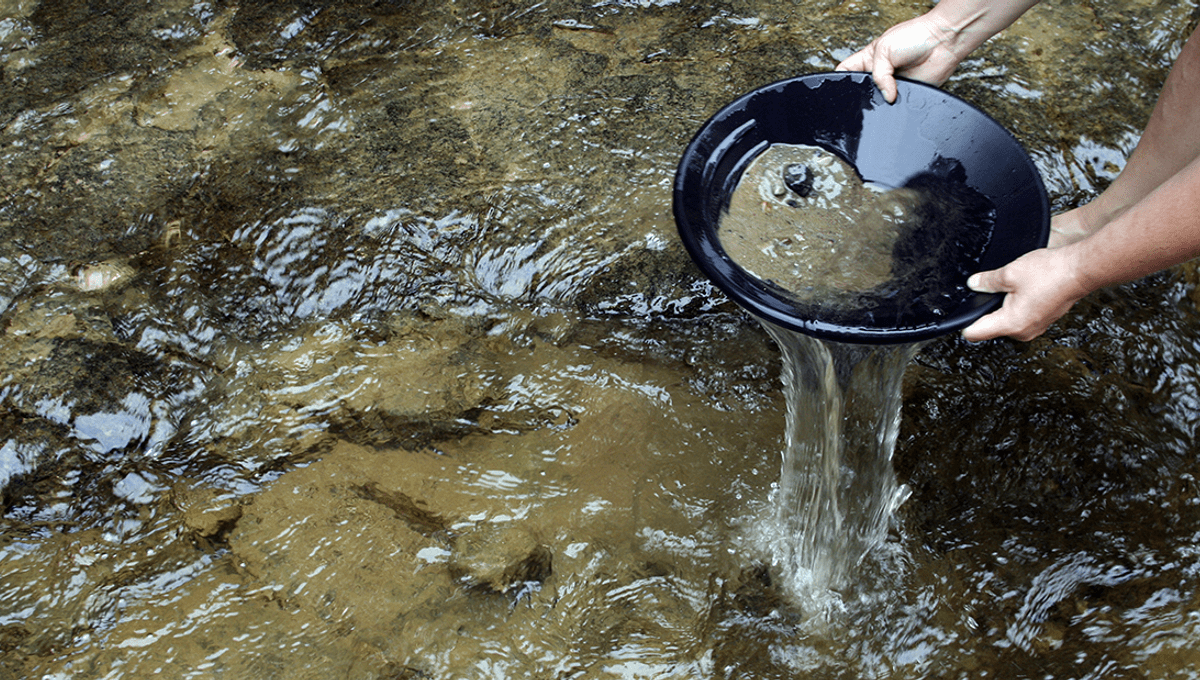
While you might think panning for gold was left behind in the 1800s, you would be very much mistaken. Amateur gold panning trips, centers, and even social media groups can offer the would-be prospector the chance to hit rich and find some gold. But should you be so lucky as to find a nugget, do you even get to keep it?
The rules largely depend on which country you’re planning on panning in and even the specific region of that country. Here, we break down what happens in Australia, the USA, and the UK if you’re lucky enough to find any gold pieces.
If you pan for gold in Australia can you keep it?
According to the Government of Western Australia Department of Mines, Industry Regulation and Safety’s website, if you discover gold, other minerals, or even gemstones on land not covered by a mining tenement and the land is Crown land, you can keep what you have found as long as you hold a Miner’s Right. Crown land is land that is owned and managed by the State Government. An individual Miners Right costs $26 AUD and lasts for 10 years in Victoria.
If you find gold on land with a mining tenement, but you have permission to prospect there, you can keep the findings if the mining tenement holder agrees.
Gold panning in Australia (and New Zealand) is also called fossicking. In areas of South Australia, no permit is needed to fossick, however, you need to have landowner permission before you get started. In South Australia, all minerals that are found are property of the Crown.
Fossicking can involve pans, shovels, sluice boxes, and metal detectors and there are even public fossicking sites such as the Echunga and Gumeracha goldfields near Adelaide. This is considering a recreational activity without the motivation to sell your findings or use them for commercial purposes.
If you pan for gold in the USA can you keep it?
In America, according to the Michigan Department of Natural Resources, recreational gold prospectors can pan for gold and keep their findings on land where both the surface and the mineral rights are owned by the state. However, there are limits on how much gold can be taken in a year.
At some National Parks, permits may be required for recreational gold panning activities as well as an entrance pass.
The rules do vary depending on where in the states you are planning to search for gold but, largely, as long as the use is recreational and you’re not using any sluices or high-powered tools, any gold findings should be yours to keep. It’s best to consult the website of the places you plan on going first though, to avoid getting caught out.
What happens if you find gold in the UK?
In the United Kingdom gold and silver are classed as “Mines Royal” – this means that in most cases they belong to the Crown.
If you intend to carry out gold and silver panning for commercial purposes you may need a license to do this and you have to contact The Crown Estate. They will be the ones to grant you permission to remove any gold that you find, though this is unlikely.
Gold panning is legal but you must have permission from the land owner before you get sifting – they also have a stake in any findings should you discover anything. In some cases, it is also wise to contact the Environment Agency, to make sure you are not panning in any areas of environmental importance. Scotland and Wales have slightly different rules about where you can pan so best to check with the local authority before you get your feet wet.
The largest gold nugget ever found in the UK weighed 85 grams (3 ounces) and was found in a Perthshire river (the precise location remains unknown). The nugget is known as the ‘Douglas’ gold nugget and is now on display at the Hunterian Museum, University of Glasgow.
Source Link: If You Pan For Gold, Do You Actually Get To Keep It?